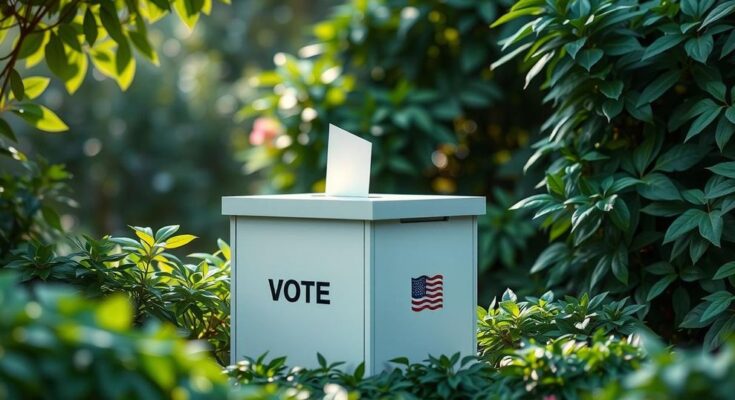Ecuador’s presidential election on February 9 focuses on President Daniel Noboa’s tenure amid high crime rates and economic issues. Noboa, facing fierce competition, including Luisa Gonzalez, hopes for a full term after a previous snap election. Crime remains the foremost concern among voters, reflecting a broader struggle in Ecuador’s socio-political landscape.
Ecuador’s upcoming presidential election, scheduled for Sunday, represents a critical moment for incumbent President Daniel Noboa, who is aiming for a full four-year term after winning a snap election 18 months ago. At just 37, Noboa has been confronted with issues of crime and economic challenges that could determine the election’s outcome. He faces competition from 15 candidates, including Luisa Gonzalez, a prominent left-wing figure, making this election a referendum on his leadership thus far.
Noboa entered the presidency with a focus on law and order, implementing measures to strengthen law enforcement, often at the sacrifice of oversight and civil liberties. Despite these efforts, Ecuador continues to struggle with rampant violence and organized crime, which has emerged as a significant concern among voters. This election will also appoint all members of the National Assembly—a total of 151 seats—to serve four-year terms.
The voting process begins on February 9; to win outright, a candidate must secure over 50% of the vote or at least 40% with a 10-point lead over the closest opponent. If no candidate meets these criteria, a run-off election will take place on April 13, featuring the top two candidates. Noboa’s presidency has been notably short since he took over following the previous president’s invocation of “muerte cruzada,” which dissolved the legislature and resulted in fresh elections.
Polls indicate that Noboa is leading but may still fall short of the necessary threshold for an outright victory. His chief contender, Luisa Gonzalez of the Citizen Revolution party, is positioned as a significant challenger after losing to Noboa by a narrow margin in the previous election cycle. Meanwhile, other candidates, including Jan Topic and Leonidas Iza, are campaigning on various platforms addressing crime and Indigenous rights, respectively.
Public sentiment reveals that crime ranks as the paramount issue for voters, surpassing economic concerns like the cost of living and unemployment. The rising violence in Ecuador—characterized by a dramatic increase in homicides—has transformed the country from a perceived safe haven to a scene of chaos, raising questions about governmental capability and corruption within the ranks.
The escalation in violence has been fueled by drug trafficking, with Ecuador positioned between major cocaine-producing countries, Colombia and Peru. Following the COVID-19 pandemic, a surge in criminal activity emerged as drug gangs infiltrated Ecuador, exacerbating existing socioeconomic issues, particularly among the youth.
Noboa has proposed rigorous responses to the crime wave, including utilizing military forces in domestic security and enacting stricter legislation against drug-related offenses. Despite some reduction in murder rates, concerns regarding the military’s involvement and alleged human rights violations persist, prompting calls for systemic solutions that transcend mere enforcement and address underlying corruption and social inequality.
As voters approach the polls, the focus remains sharply on determining how effectively candidates will address crime and restoring a sense of safety and stability in Ecuador. The upcoming election is, therefore, not only significant for choosing a president but also vital for the nation’s direction in its fight against crime and insecurity.
Ecuador is currently facing a critical juncture marked by escalated violence and organized crime, leading to widespread public concern. The incumbent President Daniel Noboa, having assumed office through a snap election following the dissolution of the legislature, seeks to secure a full term amidst significant challenges. This election will also influence membership in the National Assembly, crucial for shaping future policy and governance in the country.
The presidential election in Ecuador represents a decisive moment for President Noboa as he seeks a four-year mandate while grappling with significant issues of crime and economic instability. With a crowded field of candidates, public sentiment strongly favors addressing crime, a concern that has surged notably in recent years. The upcoming polls will determine not only the presidency but also the legislative direction, as the nation seeks responses to its pressing security challenges.
Original Source: www.aljazeera.com




